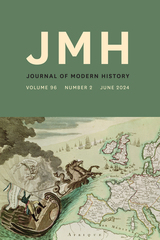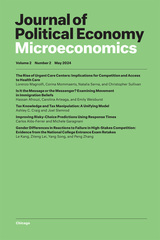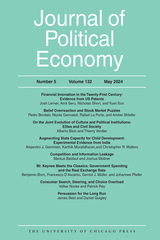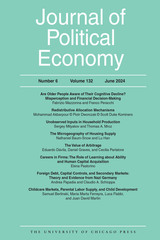4 start with T start with T
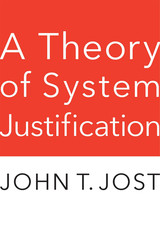
A leading psychologist explains why nearly all of us—including many of those who are persecuted and powerless—so often defend the social systems that cause misery and injustice.
Why do we so often defend the very social systems that are responsible for injustice and exploitation? In A Theory of System Justification, John Jost argues that we are motivated to defend the status quo because doing so serves fundamental psychological needs for certainty, security, and social acceptance. We want to feel good not only about ourselves and the groups to which we belong, but also about the overarching social structure in which we live, even when it hurts others and ourselves.
Jost lays out the wide range of evidence for his groundbreaking theory and examines its implications for our communities and our democracy. Drawing on twenty-five years of research, he provides an accessible account of system justification theory and its insights. System justification helps to explain deep contradictions, including the feeling among some women that they don’t deserve the same salaries as men and the tendency of some poor people to vote for policies that increase economic inequality.
The theory illuminates the most pressing social and political issues of our time—why has it been so hard to combat anthropogenic climate change?—as well as some of the most intimate—why do some black children prefer white dolls to black ones and why do some people stay in bad relationships? Jost’s theory has far-reaching implications, and he offers numerous insights that political activists and social justice advocates can use to promote change.
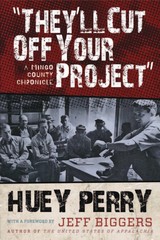
In old England, if a king didn’t like you, he would cut off your head. Now, if they don’t like you, they’ll cut off your project!
As the Johnson Administration initiated its war on poverty in the 1960s, the Mingo County Economic Opportunity Commission project was established in southern West Virginia. Huey Perry, a young, local history teacher was named the director of this program and soon he began to promote self-sufficiency among low-income and vulnerable populations. As the poor of Mingo County worked together to improve conditions, the local political infrastructure felt threatened by a shift in power. Bloody Mingo County, known for its violent labor movements, corrupt government, and the infamous Hatfield-McCoy rivalry, met Perry’s revolution with opposition and resistance.
In They’ll Cut Off Your Project, Huey Perry reveals his efforts to help the poor of an Appalachian community challenge a local regime. He describes this community’s attempts to improve school programs and conditions, establish cooperative grocery stores to bypass inflated prices, and expose electoral fraud. Along the way, Perry unfolds the local authority’s hostile backlash to such change and the extreme measures that led to an eventual investigation by the FBI. They’ll Cut Off Your Project chronicles the triumphs and failures of the war on poverty, illustrating why and how a local government that purports to work for the public’s welfare cuts off a project for social reform.
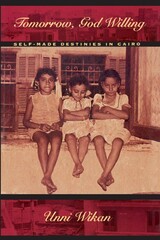
Umm Ali's story is amazing not only for what it reveals about her resourcefulness but for the light it sheds on the resilience of Cairo's poor in the face of disastrous poverty. Like countless other poor people in Cairo, she has developed a personal buoyancy to cope with relentless economic need. It stems from a belief in the ability of people to shape their own destiny and helps explain why Cairo remains virtually free of the social ills—violent street crime and homelessness—that have eroded the lives of poor people in other major cities.
Unni Wikan first met Umm Ali and her family twenty-five years ago and has returned almost every year. She draws on her firsthand experience of their lives to create an intimate portrait of Cairo's back streets and the people who live there. Wikan's innovative approach to ethnographic writing reads like a novel that presents the experiences of Umm Ali's family and neighbors in their own words.
As Umm Ali recounts triumphs and defeats—from forming a savings club with neighbors to the gradual drifting away and eventual return of her husband—she unveils a deeply reflective attitude and her unwavering belief that she can improve her situation. Showing how Egyptian culture interprets poverty and family, this book attests to the capacity of an individual's self-worth to withstand incredible adversity.
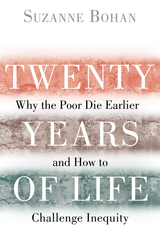
Bohan chronicles a bold experiment to challenge this inequity. The California Endowment, one of the nation’s largest health foundations, is upending the old-school, top-down charity model and investing $1 billion over ten years to help distressed communities advocate for their own interests. This new approach to community change draws on the latent political power of residents and is driving reform both locally and in the state’s legislative chambers. If it can work in fourteen of California’s most challenging and diverse communities, it has the potential to work anywhere in the country.
Bohan introduces us to former street shooters with official government jobs; kids who convinced their city council members to build skate parks; students and parents who demanded fairer school discipline policies to keep kids in the classroom; urban farmers who pushed for permits to produce and sell their food; and a Native American tribe that revived its traditional forest management practices. Told with compassion and insight, their stories will fundamentally change how we think about the root causes of disease and the prospects for healing.
READERS
Browse our collection.
PUBLISHERS
See BiblioVault's publisher services.
STUDENT SERVICES
Files for college accessibility offices.
UChicago Accessibility Resources
home | accessibility | search | about | contact us
BiblioVault ® 2001 - 2024
The University of Chicago Press


